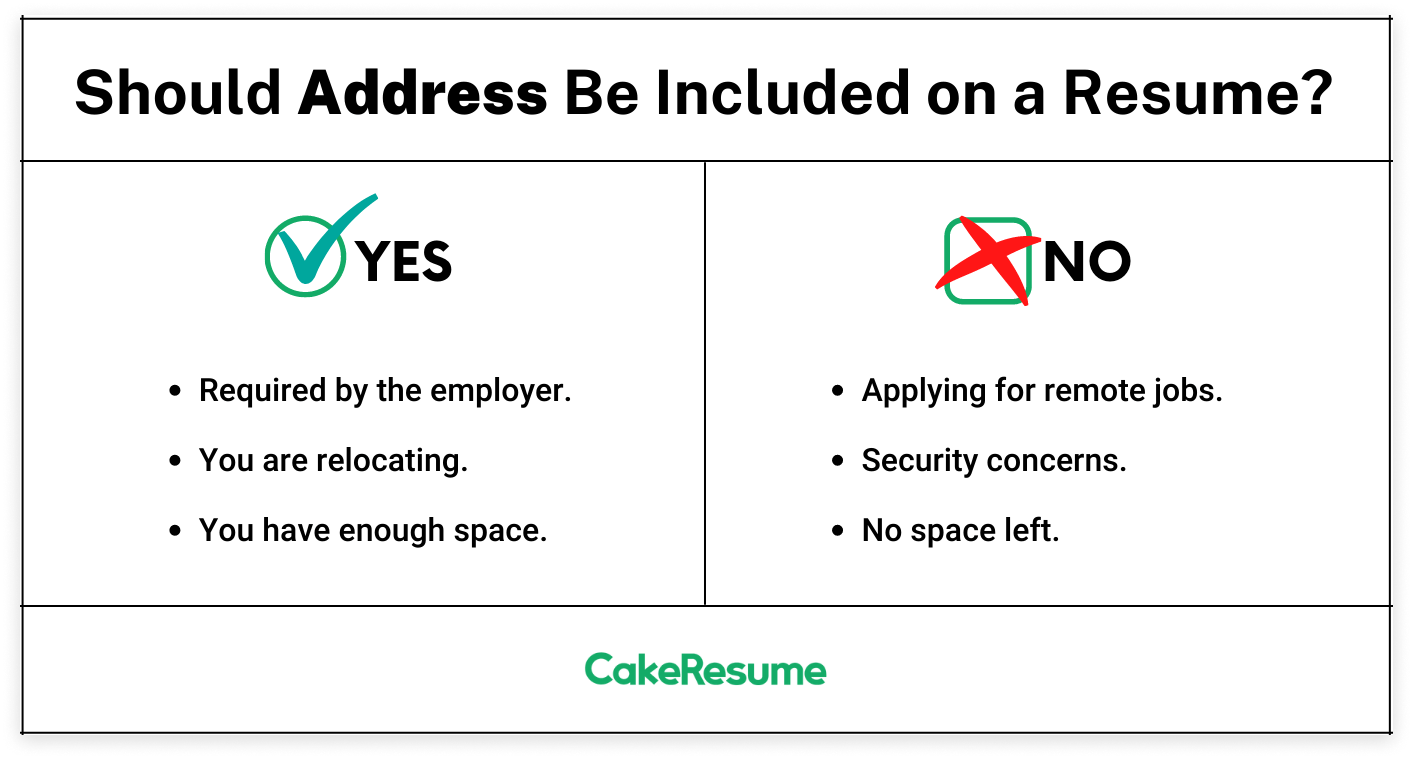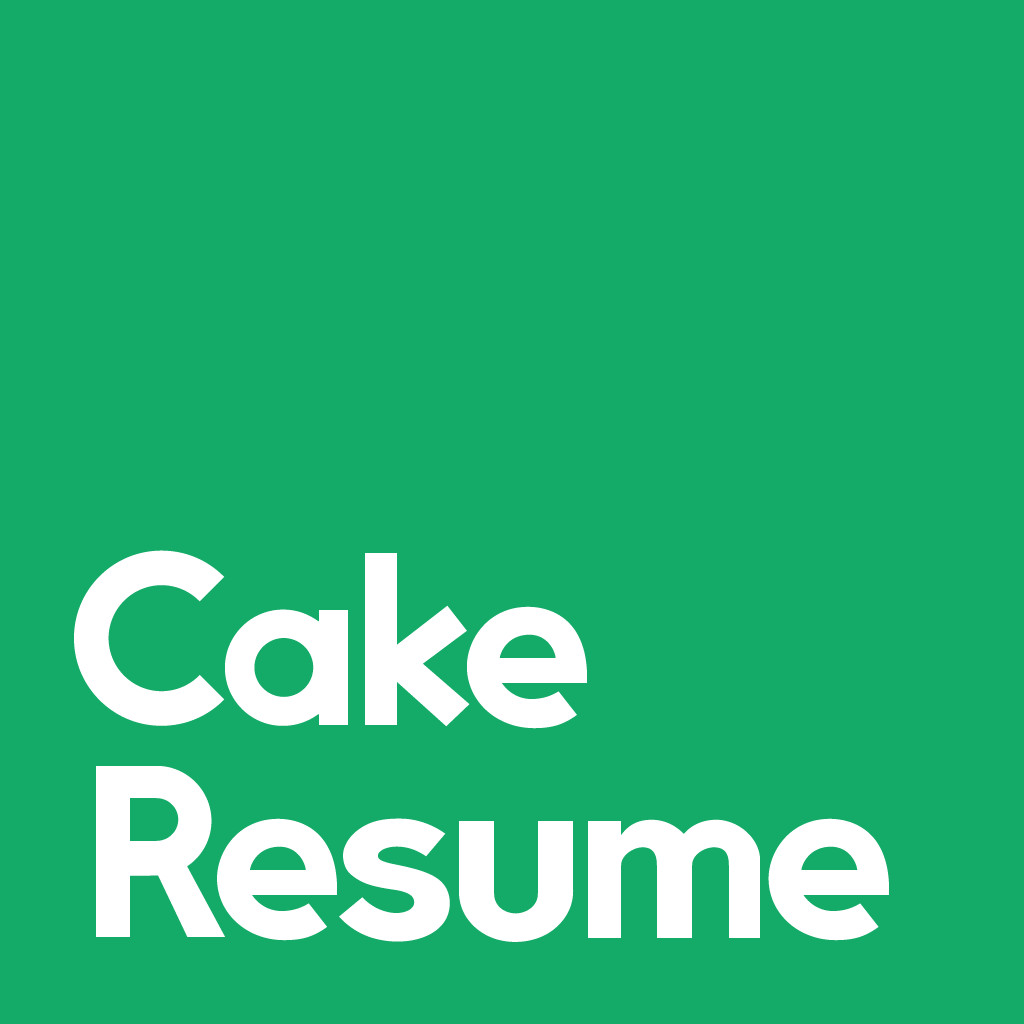Should You Put an Address on Your Resume? Here Are Reasons to Consider

Should I include my address on my resume? This is a question you might have asked yourself and people around you when writing your resume and never get a straight answer. It is a legitimate question. People argue for and against it. But it all comes down to what job you’re applying for and how comfortable you are with this sensitive information being available to others.
So the debate about whether or not to put an address on a resume or how to do it goes on. And we put together this article to help you make a decision that will land you an interview.
Traditionally, an address was a must on the CV. In the pre-Internet era, employers chiefly contacted applicants through physical mail. But nowadays, the address has lost its relevance in the early stage of the hiring process as most companies and businesses manage their hiring process online and the applicant tracking system (ATS) is widely used. Job applicants are left to wonder where the address should be mentioned on a resume or how they should present their addresses on the resume.
This guide will show you if you should put your address on your resume, how to write your address in the CV and the dos and don’ts when including your location in your resume.
Table of Contents:
Should You Put Your Address on Your Resume?
There are pros and cons of including your address on the resume. Carefully read the job description of the position you are applying for and determine if including your address in the resume will better your chance of standing out.
When should you put your address on your resume?
Although some might think having a physical address on your resume will make you appear not in tune with the time and place, there can be benefits to doing so.
The following are 5 circumstances when including your address on the resume can help your case:
- The address is required on the resume by the employer
Some employers require the applicant’s address to be included in the resume, and that is usually mentioned in the job description. - You’re relocating to a new area
Sometimes you might want to apply for a job that is not in the city where you live. Indicating your plan to relocate can help dissolve worries the employer might have in this case. - Your location helps you stand out
The hiring manager might be looking for job seekers who are close to the business. Showing that by putting your address on the resume works to your advantage. - You have enough space on your resume for the address
Some job applicants don’t have their addresses on their resumes simply because there is not enough space as a one-page resume is favored and a single page can only contain so much. If you have the extra space and feel comfortable with sharing it, why not? - Providing your address on the resume allows employers to run background checks on the applicants more easily
Around 94% of companies do background checks on potential hires, Professional Background Screening Association (PBSA) revealed. Including your address on the CV makes it easier for them to do so. It’s always a good thing to make the hiring team’s job easier. After all, they are the ones who decide to hire you or not.
When should you not put your address on your resume?
Similarly, there are advantages to be gained when you don’t include your address on the resume. If one of the following is your case, adding your address on a resume is not ideal.
- You have security concerns
As important as getting a job might be, it isn't worth risking your personal safety for. If you have any concerns regarding your safety, then don’t mention your address on your resume. A well-written resume is still a well-written resume, even without an address. But do make sure you provide your email and phone number so that the hiring team can contact you so that the hiring team could reach you. - You don’t feel comfortable sharing your address on the resume/CV
There are a wide variety of reasons why you don’t feel comfortable sharing your privacy and address on the resume. You don’t have to put an address on a resume. Addresses on the resume are usually not needed. The company would naturally want to know your address if they decide to hire you, but that’s not until the final stage of the hiring process. - You don’t have enough space on the resume for your address
Since the hiring team and you will be communicating mostly online, a resume without a physical address is not that big of a deal. You can squeeze some other more relevant details regarding your expertise and experience on your resume when you leave your address off. - You are applying for a remote position
Working remotely means that your location doesn’t matter much to the employer. In this case, you don’t need to mention your address on the resume. - You are worried that you might face bias because of your location
Sometimes a ZIP code of a region that some consider undesirable might induce bias. Although employment discrimination is prohibited by law, it is hard to prove that you have been discriminated against based on the socioeconomic status your address on the resume might lead some to assume.
In addition, some employers might be looking for people who do not need to commute long distances for the job. The reason is that long commutes have a harmful effect on an employee’s productivity and health. Listing your address on your resume in these situations could potentially hurt your chances of being invited for an interview, or even disqualify you.
How to Write Your Address on a Resume/CV
There are different address formats with which you can use to indicate your location in your resume.
Check out some examples of putting your address on the resume!
Example 1: Write down the full address on the resume
Gerd Mueller
[email protected] | 202-555-1224 | 50 Studebaker Drive, Brentwood, NY 11717, US
Creative and detail-oriented graphic designer with 13 years of experience, specializing in designing company logos, brochures and web graphics. Proficient in Adobe Photoshop and Illustrator.
💡 Pro tips:
If you are writing an English resume, here is how to write an address in the English address format on your resume:
- Write building number, street name, city, state, and country in order.
- Include the five-digit ZIP code and specify the state with a two-letter abbreviation for a US address.
Example 2: Indicate your location in the resume with city and state/country only
Alejandra Jiron
202-555-0101 | [email protected] | Owosso, Michigan | LinkedIn: Alejandra Jiron
6+ years of experience in sensor modeling and algorithm design. Expertise in image data analysis. Strong programming skills (C++ and Python).
Example 3: Include only your ZIP code in the resume to show your location
Mitsue Yukio
[email protected] | 202-555-0138 | ZIP code: 07410 | LinkedIn: Mitsue Yukio
Innovative and committed front end developer with 4 years of experience in creating interactive websites for 100+ customers. Proficient in CSS, HTML, and JavaScript.
Example 4: State that you are relocating
Amish Banahatti
[email protected] | 202-453-2395
Relocating to West New York, New Jersey in Jan. 2022
LinkedIn: Amish Banahatti
Goal-driven certified marketing specialist with 5 years of experience in the tech industry. Expert in online marketing activities with proven success in enhancing
social media exposure by 53%.
Tips on How to Put an Address on a Resume/CV
Whether you should put your address on the resume is a serious question and warrants careful consideration. Hence, think about the following before you decide if you want to do it.
✨ Weigh the pros and cons thoroughly before deciding if you are going to include your address on the resume
There are both reasons for and against including addresses on resumes. It really depends on the specific job you are applying for. So before rushing to any decision, carefully consider the pros and cons of adding the address on your resume.
✨ Use a horizontal resume header and write your address in one line
An address on the resume can sometimes benefit you, but it shouldn’t take up too much space when your professional experiences and relevant skills can better help you land an interview. So pay special attention to the font size and the way your address looks on your resume. Make it easy for the hiring team to read your address but also keep it simple and clear.
✨ Include a ZIP code to make your resume ATS-friendly
Applicant tracking systems, or ATS, are tools or software that some employers use to manage applicants and their resumes. The ATS analyses the job applicant’s resume and scans for certain keywords, for example, address on the CV. With a ZIP code, your address on the resume can be more easily picked up by the ATS.
🔑 Key Takeaways:
"Should I put my location on my resume?" has been one of the questions that troubles job seekers. To help you make a well-informed decision, we’ve explored various aspects of the topic of address on the resume: factors to consider when deciding if an address on the resume is necessary, how to add your location to the resume and tips on how to write address on your resume properly.
CakeResume provides free resume templates & resume formats to showcase your skills and experiences. Sign up to create and download your resume now for free!
--- Originally written by Yin-Hsuan Liang ---
D'avantage d'Infos sur les Carrières et le Recrutement

With the intention of helping job seekers to fully display their value, CakeResume creates an accessible free resume/CV/biodata builder, for users to build highly-customized resumes. Having a compelling resume is just like a piece of cake!






